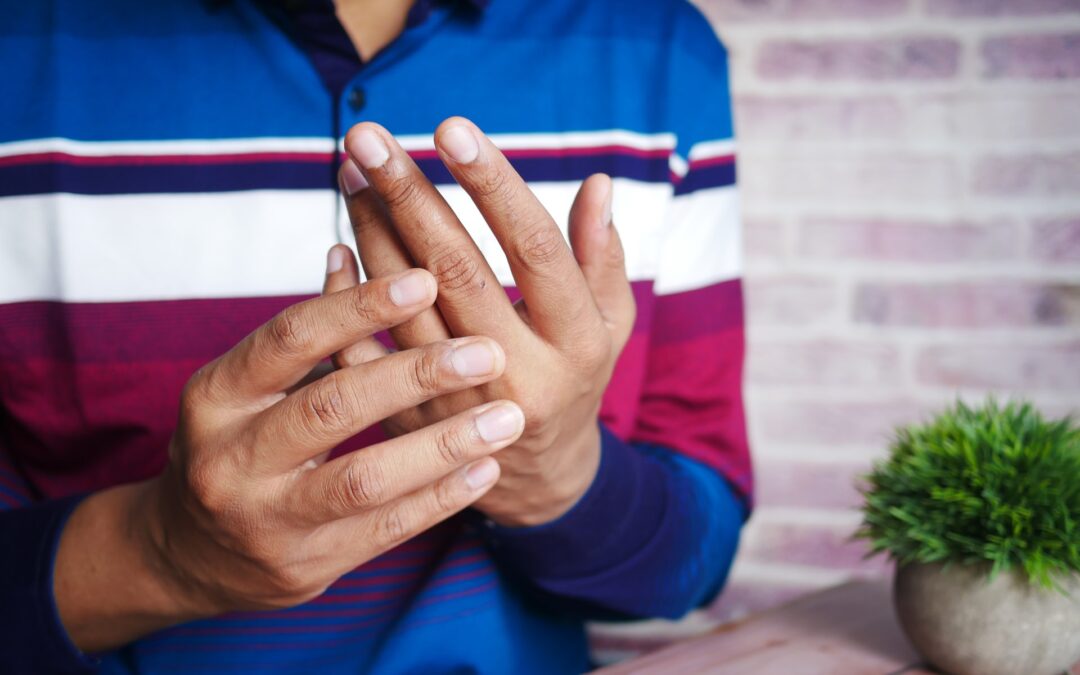Myositis is an umbrella term that refers to any condition that causes pain and inflammation in the muscles within the body. There are several different triggers of myositis, though generally, symptoms include weakness, swelling, and pain in the muscles.
If the condition progresses, it can cause further issues, including fatigue, difficulty moving arms or other limbs, and falls. Myositis is thought to affect between 50,000 to 75,000 people in America, though it’s unclear why triggers cause more severe reactions in some people and not others.
Myositis causes and triggers
Some people are thought to have genes that make them more susceptible to developing myositis, and viral infections ranging from as mild as the common cold or flu to HIV can trigger this to begin. Certain fungi or bacteria can also enter the body and penetrate muscle fibers, causing muscle damage that leads to ongoing pain.
- Injury or overly strenuous exercise can also trigger symptoms, including swelling, muscle pain, or weakness for a while following a workout. This is technically considered a form of myositis, but symptoms caused by exercise can often be resolved with rest. However, in rare cases, people can develop rhabdomyolysis, which causes muscle fibers to break down and release protein into the bloodstream. If left untreated, this can cause permanent disabilities or death.
- Autoimmune conditions such as dermatomyositis, polymyositis, lupus, and rheumatoid arthritis are caused by a malfunctioning immune system that causes the body’s defenses to attack its own tissues instead of foreign bodies. This can lead to inflammatory myositis that may require long-term treatment and can be accompanied by worsening symptoms, including joint pain, trouble swallowing, fever, and shortness of breath.
- Side effects of certain drugs or medications can cause temporary damage to the muscles. Drugs known to possibly cause myositis include statins, hydroxychloroquine, alcohol, and cocaine, among others. Myositis can be caused by long-term exposure to a drug or medication over several months or years or can be due to a reaction that occurs when taking multiple medications that interact with each other poorly.
How to Diagnose Myositis
If you think you may have myositis, it’s important to see a rheumatologist promptly for diagnosis and treatment. There are several tests that a doctor can use to determine whether you have myositis. Most commonly, doctors will order a blood test to determine whether there are signs of excess proteins in the blood that can indicate muscle damage. A tissue biopsy or MRI can be the next step to confirm a diagnosis, if necessary.
Treatment for myositis typically involves anti-inflammatory medications and sometimes steroids. Physical therapy may also be recommended to help preserve muscle strength.
Get Help with Myositis Symptoms
Our expert team at Advanced Rheumatology of Houston has years of experience treating autoimmune conditions. Allow our compassionate team to help diagnose your pain and find the proper treatment for your needs. Call (281) 766-7886 to schedule an appointment. Relief is waiting for you!



